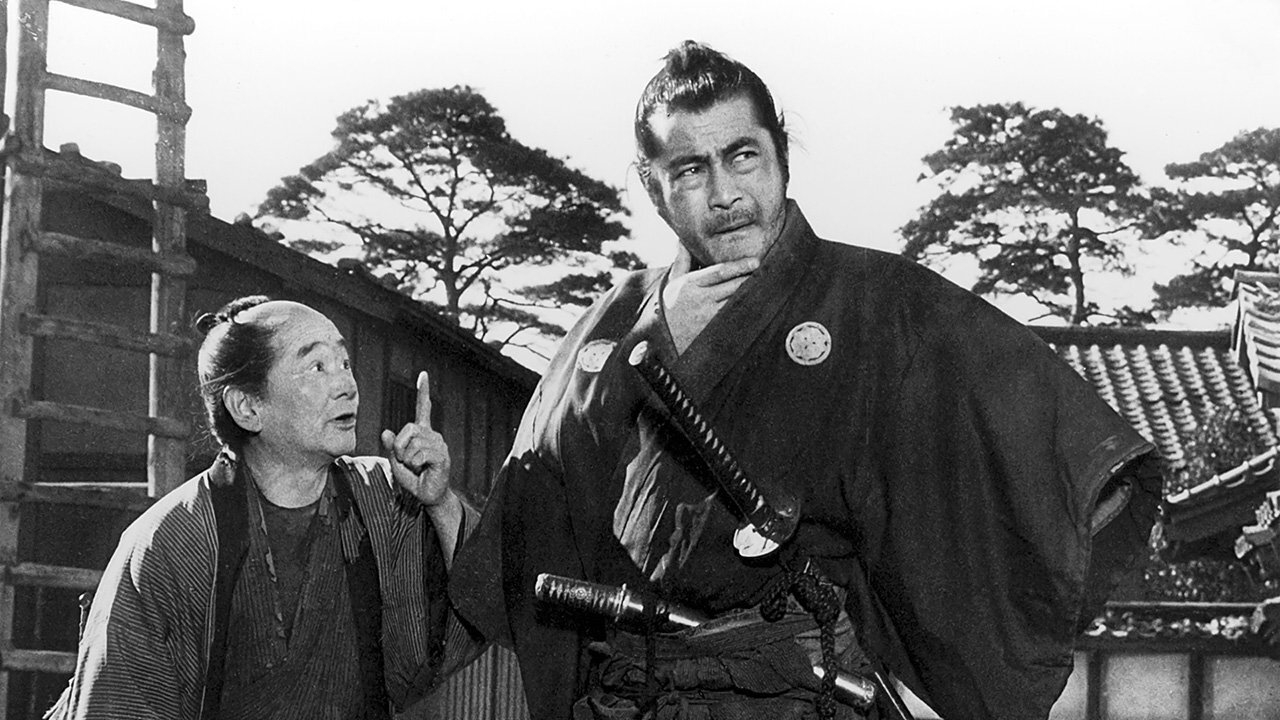PCI Preview: Yojimbo
PCI will be screening Yojimbo this following Thursday (10/29) at 9:00pm in Harrison M20
Yojimbo is one of Akira Kurosawa’s most entertaining films. Starring the frequent Kurosawa lead, Toshiro Mifune, and released in 1961, it is one of Kurosawa’s best period dramas. It’s the fourth to last of Kurosawa’s sixteen collaborations with Mifune, which began in 1948 with Drunken Angel and ended in 1965 with Red Beard.
An unnamed wandering ronin arrives in a small nineteenth-century Japanese town divided by a gang war and tries to bring peace by playing the two sides against each other.
Kurosawa, in many respects, made two kinds of films: thoughtful dramas and action movies. Yojimbo, though more serious than its loose sequel, Sanjuro, is firmly in the second camp. In Kurosawa’s more literary works, there is often social commentary. More importantly, the problems the characters face are intractable and often only worsened by violence. This can be seen in his 1957 film, Throne of Blood, and his 1960 movie, The Bad Sleep Well. In contrast to Yojimbo, violence in these films is generally portrayed as more pitiful than heroic. Connected to the possibility of resolution, is the portrayal of class. In Kurosawa’s more serious films, issues of class are viewed critically, especially apparent in his 1963 film, High and Low, making easy solutions impossible. Kurosawa’s action films, all period dramas, present the class system uncritically and sometimes even reinforce it, opening Kurosawa to criticisms of classism. The problems in these films are a disruption to the natural order, and violence, wielded effectively by one or a small group of samurai, is used to allow a return to the status quo.
Yojimbo is steadily paced and well-choreographed, but its strongest achievements are its cinematography and its minimalist plot and dialogue, emblematic of how Kurosawa’s samurai films would come to strongly influence the western genre. The film alternates between medium shots, with multiple characters crowded in the frame, and shorter takes, often just of a single character, the crowding building tension and the sparsely populated counterpoints framing the characters in the period setting. The protagonist’s real name and origin remain ambiguous (Yojimbo is Japanese for bodyguard), and he speaks minimally considering his near constant presence on the screen. The film is definitely placed in nineteenth-century Japan, but has little interest in period detail.
The film’s innovative technique and minimal narrative lent itself well to wholesale importation as well as imitation. Sergio Leone’s 1964 Spaghetti Western, For a Fistful of Dollars, is an unauthorized, and almost scene for scene, remake of Yojimbo. A lawsuit from Toho, the company that produced Yojimbo, delayed For a Fistful of Dollars’s release in the United States for three years and resulted in an out of court settlement. Yojimbo, in turn, according to Kurosawa, was based on the 1942 American film noir, The Glass Key, an adaptation of a 1931 Dashiell Hammett novel of the same name, and according to many film critics, Hammett’s 1929 novel, Red Harvest. The scene in Yojimbo where the samurai spares the life of a young peasant is also quoted in Quentin Tarantino’s 2003 martial arts film, Kill Bill: Volume 1, though without the class connotations.
Like a Spaghetti Western or a Tarantino movie, Yojimbo is an immediately fun film. The choreography and framing are so exacting, and so cool, the movie can be rewatched endlessly. Thematically, though, the film is troubling. The moral, more or less explicitly stated in the film’s exposition, is to accept one’s station in life, even in a hierarchy of blatant inequality and instability. The government is incapable of maintaining the rule of law, but the role of the peasants is to suffer passively until a masterless samurai happens to wander into the town and altruistically risk his life to restore peace. The regressive nature of the narrative is tempered by the contradictions within the logic of the film and within Kurosawa’s larger body of work. Despite the lack of thematic depth, Yojimbo is as much a stylistic masterpiece as any film Kurosawa, or any other director, has created.
